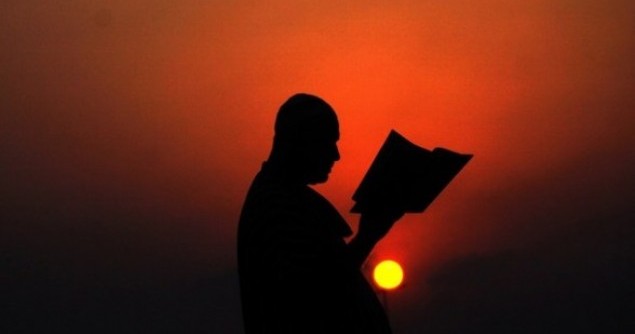Is It Possible to Have an Eco-Friendly Ramadan?
This Ramadan, many Muslims are looking at a new dimension of the month: our impact on the earth. This is particularly important as we learn more about the effects of climate change, dwindling resources and, most importantly, decreasing access to fresh water around the world, which is a growing concern in many Muslim communities and countries.
Muslims believe that God has asked them to abstain from food and drink from sunrise to sunset during Ramadan. In addition to fasting, Muslims around the world aspire to attain spiritual contentment and come closer to God through increased prayer, meditation, helping others and self-reflection. While fasting is the most well known aspect of the month, it is also a time to be more aware of the universal principles of mercy, compassion and respect for the Earth that our faith teaches.
In the Qur’an, God states that he has placed humanity as a “vicegerent on Earth” (2:30). Accordingly, Muslims believe that humans are called to protect, cherish, care for and respect the Earth and all of God’s creation within it. This theme was echoed in the life of the Prophet Muhammad. In one of his famous sayings, he states that even if the end of the world comes when you are in the middle of planting a tree, you should continue to plant it.
During Ramadan, Muslims in the United States have been finding ways to make Ramadan more “green”, or environmentally sustainable, and reduce their impact on the earth. Nightly iftars, when Muslims break the fast, play an especially important role in this.
Throughout Ramadan Muslims gather for community iftars every night, with larger gatherings usually held at local mosques, sometimes with hundreds of individuals in attendance. Many Muslims have begun holding “Green Iftars,” also referred to as “Zero Trash Iftars”, which provide an alternative to discarding hundreds of pieces of disposable plates, cups, utensils and even food. Groups that implement the practice of “Green Iftars” make use of reusable or recyclable materials and aim to avoid any waste.
Some mosques, like Dar Al Hijrah and Adams Center, both located in Northern Virginia, educate their congregates on the importance of environmental sustainability and have set up recycling programmes to educate their members.
Other Muslims take a more personal route, striving to incorporate sustainable practices into their daily lives. Many individuals follow the Prophet’s advice that Muslims should only fill one-third of their stomachs with food, with one-third reserved for liquid and the final one-third for air, minimising the amount they consume. Many also make conscious efforts to conserve water to the last drop, especially during the ritual ablution (calledwudu) that Muslims perform before prayer. The conservation of water is a recurring theme within Islamic teachings.
In addition to avoiding wasteful practices regarding food and water, many Muslims also take stock of material possessions, reflecting on what is really needed and how our consumption patterns affect the world around us.
The Prophet emphasised to his followers that the act of giving up food and drink loses its significance without personal evaluation. Essentially, Muslims are encouraged to reflect on this question: what is the point of the physical act of fasting if our actions and words go unchanged?
While there are many higher values that Muslims strive to adhere to in their daily lives, the values of environmental consciousness and stewardship are particularly relevant during this month.
Now is the time for us to encourage ourselves, and those around us, to be the best possible stewards of the earth and to live as individuals who are compassionate and respectful toward the diverse and beautiful aspects of God’s creation. As humans, we are responsible for the world around us and we have a duty to strive to make the changes we wish to see.
If all of us, regardless of our faith tradition, were able to take stock of our personal connection with nature, and our consumption patterns, surely the world would be a different and much better place.
Ryan Strom is the Communications Manager for Green Muslims, a DC-based organisation that seeks “to provide a unique and organic source of environmental leadership, inspiration, awareness, and direct action within Muslim communities.” Follow Green Muslims on twitter @GreenMuslims.




3 Responses to Is It Possible to Have an Eco-Friendly Ramadan?
You must be logged in to post a comment Login